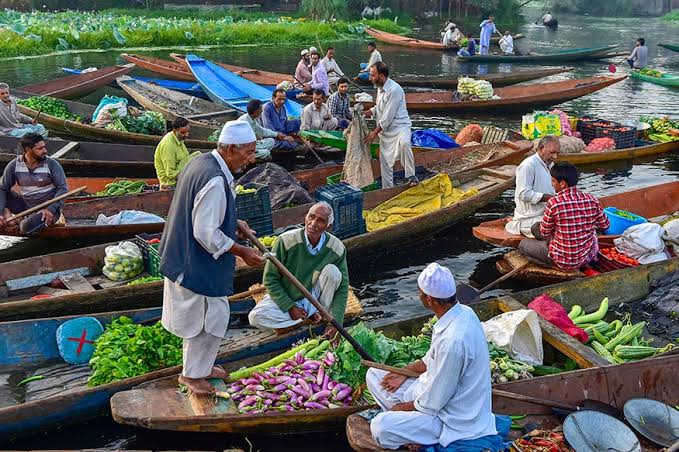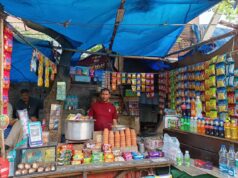A few months ago, the J&K administration announced that there is no requirement of getting a NOC from the Industries and Commerce department before setting up an Industrial Unit. The J&K government has been trying to improve the ease of doing business in the state, by reducing the various NOC burdens that exist. Earlier at least 15 NOCs/Clearances were required to set up an industrial unit, which has now been reduced.
Reducing NOCs is a move aimed at attracting more investors and businessmen to the valley. It is also focused on encouraging the local population to start their ventures. It is important to note that the unemployment rate in J&K is at 9% while the national average is 7.8% according to the Centre for Monitoring Indian Economy. This is mainly due to the absence of the private sector. Currently, J&K ranks at 21 in the Ease of doing business rankings 2019. This ranking is for the regions of Jammu, Kashmir and Ladakh combined before the state was divided into two Union Territories.
According to the Business Reforms Action plan 2019, a total of 187 reforms were introduced for the state and out of which 137 have been implemented so far. Many reforms which are quite essential for smoothing out the process of setting up a business have still not been implemented. For example, developing and making publicly available a comprehensive checklist of the application procedure and timeline of all required pre-establishment NOCs, licenses, registrations and other mandatory State approvals required for setting up of a business has still not been done.
One of the major reforms introduced in the entire country is the digitalisation of all the applications and approvals. The aim is to make the application process smooth with a focus on reducing the time taken to submit hard copies of various documents to the department offices. The government is working towards establishing a single-window system to make the whole process a lot easier. The digitisation exercise is also followed in the state without paying heed to widespread internet shutdowns in the state. 4G internet services were finally restored after one and a half years in January 2021. But these shutdowns continue whenever there is minor unrest anywhere in the state. Unless and until there is 24 *7 access to high-speed internet, the idea of digitization is a distant dream for the state.
One cannot ignore the fact that any successful business needs capital resources like electricity. In the winter months, which is almost 6 months of the year, everyone struggles to get basic 24-hour electricity in the region. In reform 282 in the BRAP 2019, under Obtaining Electricity Connection, it is required that the regulator publishes monthly or quarterly data regarding the total duration and frequency of outages online in the public domain. This reform has not been implemented, as the inefficient electricity supply records cannot be put out in public.
Improving the business atmosphere is a part of the ‘development’ narrative that underlines the removal of Article 370. In the one and a half year after the removal of Article 370, the economy of the region has only sloped downwards. A lot of young people who started their businesses had to shut down due to the lockdown post August 2019. According to a report by the Kashmir Chamber of Commerce and Industry, in 4 months after the removal of Article 370, Kashmir’s economy suffered a loss of Rs 17,878.18 crores. All the reforms to improve the business environment cannot be seen in a vacuum and are a part of the narrative of portraying ‘normalcy’ in the valley to the world.
The need is to focus on very basic problems like accessibility to the internet, better power connectivity, and better infrastructure to develop the business environment in the region. While the Ease of Doing Business rankings usually focus on regulations and approvals, the need for developing basic infrastructure cannot be denied.
In today’s world, no one can imagine a life without proper electricity and internet facilities, let alone the survival of a successful business. It is no wonder that Srinagar, J&K’s capital city was recently ranked as 49th in the ‘Ease of Living Index’ and comes under the worst livable cities in the country. One of the major reasons why people are hesitant to invest in the valley is because of this uncertainty and until there is a policy backed solution to that, the opportunity cost of doing business in the region is too high.
Read More: Yes, the glaciers are melting but no need to panic.
Post Disclaimer
The opinions expressed in this essay are those of the authors. They do not purport to reflect the opinions or views of CCS.






